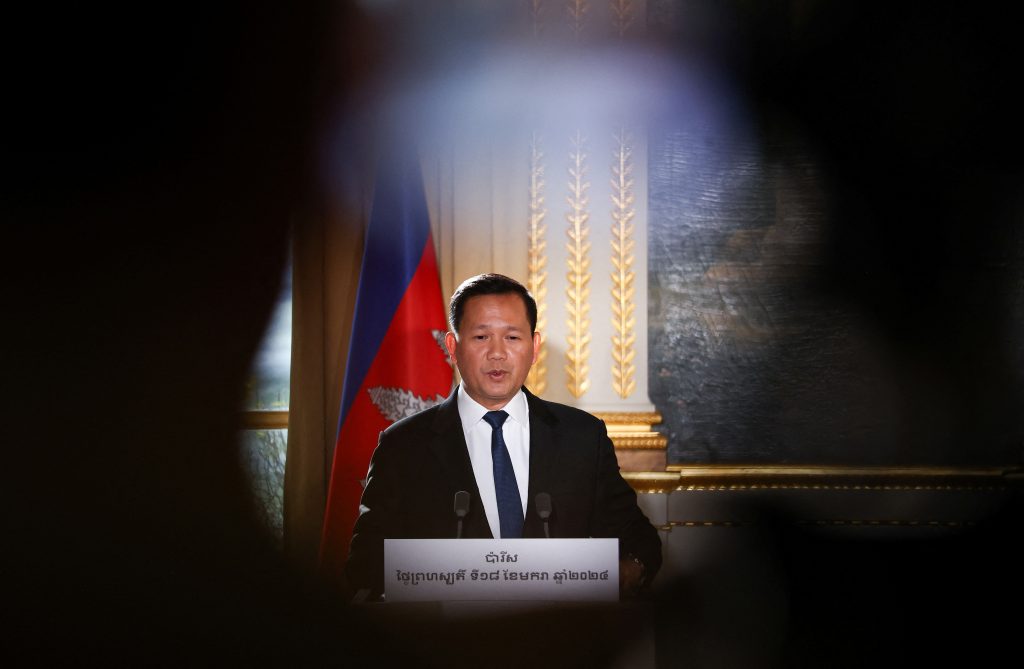Cambodian prime minister Hun Sen’s resignation and his subsequent appointment of his eldest son Hun Manet as Cambodia’s new leader puts 2023 among the most significant years in the country’s history.
The announcement of his resignation on 26 July followed an otherwise unremarkable general election with predictable results. After widespread suppression of the remaining independent media and opposition, culminating in the disqualification of the Candlelight Party, the Cambodian People’s Party (CPP) declared a landslide victory, securing 120 of the 125 available parliamentary seats.
The Cambodian public and observers alike had long anticipated this dynastic succession. Hun Sen, ever the strategist, spent much of his 38-year reign ensuring a smooth transition. In addition to making full use of his powers over the country’s legal and political institutions to quash any potential opposition to his son’s political ascent, considerable effort went into the careful curation of Hun Manet’s image. Manet was proffered as an open and progressively inclined leader, closely attuned to Cambodia’s young voters and ready to remake the country in the image of their political and economic aspirations.
Considering the long list of imprisoned political opponents and civil rights activists, many have reacted dismissively to the idea that the Cambodian government would soften its autocratic governance by virtue of this political transition. Throughout 2023 the Cambodian government continued its spree of harassment, intimidation and arbitrary detention.
Opposition politician Kem Sokha was sentenced to 27 years imprisonment in March 2023, while human rights advocate Theary Seng was sentenced to six years imprisonment in June 2022. They are among the Cambodian government’s most prominent victims, with several international organisations calling for their release. Meanwhile opposition leaders like Mu Sochua and Sam Rainsy who escaped their prosecution and arrest in Cambodia remain in exile, unable to return to their homeland.
Other international and domestic actors have signalled more readiness to invest in the conviction that 2023 marks a promising juncture in Cambodia’s political trajectory. Central to this notion is the shared assessment that there is an opportunity to bring about positive changes by capitalising on the new government’s desire to build domestic and international legitimacy.
In the realm of foreign policy, this conviction among Cambodia’s democratic partners has overwhelmingly translated into the same wait-and-see approach that already characterised relations with Cambodia under Hun Sen. The United States, Australia and European governments continue to issue carefully worded statements of concern, lamenting the lack of political freedoms in the country while simultaneously reiterating their desire to improve their relations with Cambodia for economic and strategic reasons. Hun Manet is quick to present these meetings as evidence for the international acceptance of his rule.
Domestically, the CPP leadership has clearly stepped up the pace and quality of what might be termed an ‘outreach campaign’. When discussing the ever-growing list of former opposition politicians, scholars or other critical thinkers joining the ranks of the CPP, a small but perhaps significant change is noticeable.
In the past, such decisions were invariably accompanied by rumours of debts, threats or looming dispossessions. Now, the explanations for defections or the acceptance of government posts tend to centre pragmatism and careful assessments of the benefits inherent in the temporary sacrifice of political principles for effective policy and institutional changes in the future.
Billions of dollars spent on trying to politically engineer a democratic path for Cambodia have overwhelmingly failed to produce tangible results. The idea that open-minded, socially conscious, Western-educated actors that have returned to Cambodia to take up positions in the government will be able to seize the momentum and foster progressive reforms from within by improving policy and governance does hold undeniable appeal.
Yet if Hun Manet is truly his father’s son, it will be his government and those he considers vital to furthering his family’s and party’s interests who will ultimately benefit the most from nurturing such hopes.
Katrin Travouillon is Senior Lecturer in the Department of Political & Social Change at the Coral Bell School of Asia Pacific Affairs, The Australian National University.
This article is part of an EAF special feature series on 2023 in review and the year ahead.


Former Cambodian prime minister Hun Sen stepped down in 2023, passing leadership to his eldest son Hun Manet. This occurred amid a wave of political suppression and imprisonments that helped the Cambodian People's Party to win a predictable landslide victory in the 2023 general election. Despite international disapproval of the country's autocratic government, some hold newfound hope that a new leader could lead to some positive changes. Yet scepticism remains as to whether any reforms will be to the benefit of the wider country or just to the benefit of Hun Manet's family and party.